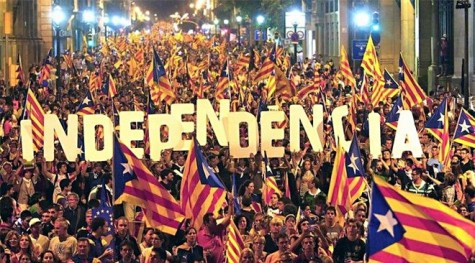2,001,926 : 1,617,689
In light of the recent referendum, in which Scotland took the enticement of independence into their own hands by giving voice to the Scottish people, the opportunity of sovereign authority for cultures and peoples in similar situations has resounded through the world.
The Scottish Referendum was held September 18, 2014 and had an astounding turnout of 84.6% of voters, who took the time to go to the polls. The bill the Scottish Parliament passed was enacted in 2013 as the Scottish Independence Act 2013. Any European Union (EU) or Commonwealth citizen that was 16 or older wielded the power to vote, which brought the number of empowered Scots to 4.3 million.
Despite the “No” result of the Scottish Referendum, other regions that are UN members seek the same opportunities to vote for independence. The world’s attention is turned to regions of Belgium, Spain, and Italy that could be next to vote for freedom.

A spark for freedom was ignited by Scotland’s prospect of separation from the United Kingdom. This year’s referendum is not the first time that Scotland has sought separation. The devolution of Scotland has been a prospect since the 1920’s and has only grown in popularity until the climax of this year’s referendum.
Belgium has a separatist movement brewing in its borders. The Dutch-speaking north is eager to split from the French-speaking Wallonians. Their struggle to form a strong government mimics similar circumstances of the Great Schism, when East-West Catholicism was divided along linguistic and cultural lines, because the Belgian Government had four prime ministers at one point ( it has even been referred to as an accident in history). Unfortunately, the Flanders are in no position to split, as they have few representatives with seats in both the Belgian parliament and the Flemish parliament.
Northern Italy shares the same separatist sentiments as Scotland, but for extremely different reasons. Padania, what the separatists of Northern Italy call themselves, have a lower unemployment rate, roughly twice the income of Southern Italy, and pay twice as much in income taxes than Southern Italy. Southern Italy is viewed as a burden by the Lega Nord (Northern League) leader, Umberto Bossi. The underdeveloped South is claimed to be a tax siphon by members of the Lega Nord.
Catalonia, currently part of Northern Spain, will be nearly reproducing the situation of a referendum on November 9. The Catalan dissent of Spain is supported by many in the region because of glaring differences in language and culture. The government in Madrid is more keen on keeping Catalonia’s current status the same than any attempts made by London to prevent Scotland from gaining its independence. The Catalonian situation also lacks a voice of opposition to independence. Some say those who oppose are afraid to speak and be heard as going against the supposed majority. The purpose of the referendum is to find if there is an opposition. Also in contrast to Scotland, the Catalans do not have the right to vote in the poll that would be their referendum.
http://www.theguardian.com/world/2014/oct/05/tarragona-catalonia-independence-referendum-pro-union
http://www.ibtimes.com/scottish-independence-vote-reignites-separatists-across-europe-1689523
http://content.time.com/time/specials/packages/article/0,28804,2041365_2041364_2041383,00.html










Cody Maynard • Oct 15, 2014 at 5:50 pm
Very very clever title. Great read. Great wrap up.